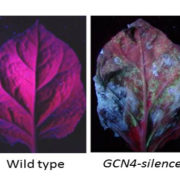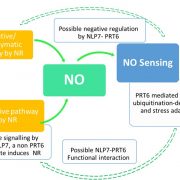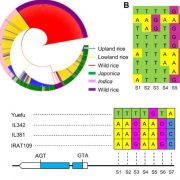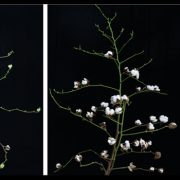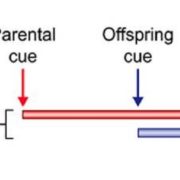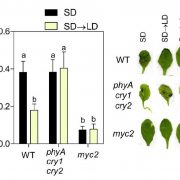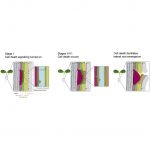MicroRNA397b-LACCASE2 module regulates root lignification under water- and phosphate deficiency ($) (Plant Physiol)
 Water and nutrient availability are a major limiting factors for plant productivity. Plant have evolved a series of complex adaptive features that help them to survive in the hostile environment. Upregulation of lignin biosynthetic genes in roots under salt and water stress have been reported in some plant species, and in Arabidopsis roots during phosphate starvation, yet our knowledge of how lignification is regulated in roots in response to abiotic stress remain elusive. LACCASEs are multi-copper oxidases that catalyze the formation or degradation of various polymers. Khandal et al. identified two LACCASE genes LAC2 and LAC4 whose expression consistently decreases in response to mannitol treated Col-0 arabidopsis seedlings. T-DNA insertion lines of these gene were used to investigate their role in primary root lignification. DAB staining and quantification in mutants and complementation lines showed that LAC2 is a negative regulator of lignification in roots. They also showed that LAC2 expression and root lignification is regulated at the post-transcriptional level by the microRNA miR397b. The authors also showed that LAC2-dependent lignification is not specific to water deficit stress as LAC2 and LAC4 expression was also significantly downregulated in phosphate stress treatment. Genetic testing involving T-DNA mutants, overexpression lines, ad short tandem target mimic were subsequently used to confirm the direct role of miR397b-LAC2 module in drought and phosphate mediated root growth inhibition. (Summary by Toluwase Olukayode) Plant Physiol. 10.1104/pp.19.00921
Water and nutrient availability are a major limiting factors for plant productivity. Plant have evolved a series of complex adaptive features that help them to survive in the hostile environment. Upregulation of lignin biosynthetic genes in roots under salt and water stress have been reported in some plant species, and in Arabidopsis roots during phosphate starvation, yet our knowledge of how lignification is regulated in roots in response to abiotic stress remain elusive. LACCASEs are multi-copper oxidases that catalyze the formation or degradation of various polymers. Khandal et al. identified two LACCASE genes LAC2 and LAC4 whose expression consistently decreases in response to mannitol treated Col-0 arabidopsis seedlings. T-DNA insertion lines of these gene were used to investigate their role in primary root lignification. DAB staining and quantification in mutants and complementation lines showed that LAC2 is a negative regulator of lignification in roots. They also showed that LAC2 expression and root lignification is regulated at the post-transcriptional level by the microRNA miR397b. The authors also showed that LAC2-dependent lignification is not specific to water deficit stress as LAC2 and LAC4 expression was also significantly downregulated in phosphate stress treatment. Genetic testing involving T-DNA mutants, overexpression lines, ad short tandem target mimic were subsequently used to confirm the direct role of miR397b-LAC2 module in drought and phosphate mediated root growth inhibition. (Summary by Toluwase Olukayode) Plant Physiol. 10.1104/pp.19.00921


